Capt Will Matthews enlisted into the Corps of Royal Engineers in Jun 1996. After completing basic & trade training he was assigned to 22 Engr Regt in Perham Down (Tidworth).
During this time, he promoted to LCpl in 1998, deployed on Op PALATINE (Bosnia), OP AGRICOLA (Kosovo) & OP BASILICA (Sierra Leone). In Apr 2002, upon promotion to Cpl he was assigned to 3 Royal School of Military Engineering (3RSME) as an Instructor. He was posted back to 22 Engr Regt in 2006, initially as the Provost Sgt and then as a Tp Sgt in 6 HQ & Sp Sqn, where he deployed on back-to-back tours of OP TELIC 9 & 10 (Iraq).
He was promoted to SSgt in 2009, & assigned to 35 Engr Regt in Paderborn (Germany) where he deployed on OP HERRICK 15 (Afghanistan) in a Search role, before returning to 3RSME in 2012 as a WO2 (QMSI), for 8 Engr Bde as an RE Reserves Training Design & Standards Examiner.
Capt Matthews returned to 22 Engr Regt as the Squadron Sergeant Major of 6 HQ & Sp Sqn in 2014, & promoted to WO1 in 2016, assigned to Defence Equipment & Support (DE&S) Abbeywood.
Upon Commissioning in Apr 2018, he assumed the appointment of 2ic at Recruiting Group Selection, Army Training Centre Pirbright. Capt Matthews served as the Adjutant of Home Command Cadets Branch, before taking up his latest role at RMAS.
Capt Matthews lives with his partner, Natasha, & they have one son (George William), born on 1 Jul 22. His hobbies include most Sports and Adventurous Training, in particular cycling where he manages and competes for the Army Cross Country Mountain Bike Team, although finds the older he gets, the faster he was.
Capt Will Matthews likes to think he’s a snappy dresser and has smooth moves on the dance floor, sadly the rest of the British Army doesn’t agree. As a Bolton Wanderers fan, he’s become well versed with disappointment.
Current Role: Royal Military Academy Sandhurst (RMAS), Academy Headquarters

Service: Army (regular) / Royal Engineers / 23 Jun 1996 – Current
Ops: Bosnia, Kosovo, Sierra Leone, Iraq, Afghanistan
Tell us a bit about yourself, background, and current role?
I would describe myself as someone who is highly motivated, and l particularly enjoy working as part of a team. I come from a simple background, which may seem familiar to some: Broken home, council estate dwelling and underachieved at school. I decided whilst in the Army Cadets (age 15) that l wanted to get away from my hometown that offered little in the way of opportunity for someone like me and sought out a career in the Army.
Most recently, l have been part of Regional Command, Cadets Branch as the Adjutant of CTC Frimley and since July 2023 now serve with RMAS Ac HQ in a G7 (Training) role, which has seen me continue to operate in a ‘whole force’ environment (Civil Servants, Regular & Reserve military personnel) where we collaborate effectively in a fast-paced team environment.
Have you faced any challenges along the way?
I joined the Army with no long-term objectives, which in a way reduced self-induced pressure. I had grown used to people ‘not expecting much from me’ at school, so l saw it as a way of not letting anyone down and managed my own expectations. I intended to serve 3 years, get a trade then return home. 27 years on that plan has evolved!
Early on, during basic training it was discovered l was dyslexic, the Army helped me overcome many of the implied constraints (as opposed to my school who threw me out of classes because ‘I was stupid’). Slowly, l started to thrive in my unique environment, and enjoyed the practical element and problem solving that Engineering offered. Once l arrived at my first unit, l was immediately deployed to Kenya on a construction tour, then a peacekeeping tour of Bosnia followed in quick order. l gained Lance Corporal rank within the first 2 years and that was that – I was hooked, l discovered l had a purpose, responsibility, and goals.
When l reflect on my career, l’m now proud of what I have achieved, but l’m prouder of my colleagues, and what we have done together as teams. I have several Deployment or Course photos at home, l look at them often and think how we helped and supported each other, through good and tough times. And that is what l’ll take away when l leave– the friendships and support that service life offers.
In your current role, how do you demonstrate being a male ally every day?
I like to challenge my and others’ perceptions and beliefs all the time (not just in the Army, but also online or in general conversation with our teams) so this has been a constantly evolving project which has turned into a passion of mine.
Coming from a small, industrial Lancashire town, l’m sad to say l had been exposed to all sorts of beliefs and opinions that have no place in today’s modern society, and l’m ashamed of growing up at that time and adhering to what l thought was acceptable.
I saw some of these traits in the ‘Army of old,’ and over time the Army has clearly become a much more inclusive environment, but there is still work to do. This is a leadership and personal development challenge for us all – to act appropriately and professionally, to offer support and to educate.
How do you believe men can become better allies to women?
Be the ally they wished they had when they themselves doubted themselves, or experienced physical or perceived barriers in the way of progress.
I ask all our personnel to challenge their perceptions; what you think you know. Really scrape back to your roots and start from there. Identify any unconscious biases and hidden inequities and form a strategy on how you will mitigate them. I highly recommend attending Equality, Diversity & Inclusion courses, as an advisor or an assistant, which will challenge and develop you as well as making you a focal point for your unit.
From there, get involved with D&I committees, champion D&I efforts within your workplace, and finally talk to your people – create a safe space for them to offer their views, with ground rules: Critique the thought, not the individual. Respect the safe space you create.
As male allies, we must be comfortable with challenge if we observe incorrect language, actions, or terminology, and be prepared to create the safe space for challenge and resolution to take place.
What can be done to get more men on board as male allies?
Our organisations must actively support our volunteer male allies, who are also quite possibly taking themselves out of their own ‘comfort zones.’ Champion success, and be seen as a force for good, which will of course generate interest and therefore growth.
Whilst 2018 (when the Army offered all roles determined by ability alone, and not gender) changed for the better, we have lots of male personnel (myself included) who have served a significant amount of time, who are perhaps hard wired in the way things where, so ‘we’ have to empower (and listen!) to our junior male and female soldiers if we are out of step. In doing so, male allies will naturally form across all ranks, and grow from junior level.
We must always be approachable for our female colleagues, constantly seeking new ways to develop understanding of issues (biological and mental) that female members of our team’s may experience, so that we can support / encourage performance, and realise potential.
Do you believe the defence sector is where it needs to be in terms of gender equality and why?
I can only reflect on my own experience in the Army. Since late 2018, the Army is determined by ability alone, and not gender. This will unquestionably maximise talent, and this collective belonging means there is lots of things that men can now do to make things better for women in a military environment. It is an amazing vision and will take time for the benefits to be fully realised across the ranks and roles.
In the interim, an observation is that society has moved on at such a pace in the last decade, a future challenge across all sectors is making sure everybody evolves together in a respectful way, by calling out unacceptable behaviours or opinions early that are out of step with our future vision, which will then foster further confidence and equality in all our teams.
Can you give any examples of positive change that you have noticed over the past 5 years to attract women into the armed forces?
Defence has set a Level of Ambition to achieve a 30% inflow of women to the Armed Forces by 2030. It is recognised that 30% is a challenging level of ambition, and one which has not yet been achieved by many of our NATO partners. A Whole Force approach has been developed including tailored recruiting activities, women-focussed marketing campaigns and making greater use of Servicewomen as recruiters.
Recruitment alone is not enough so a greater focus on retention, behaviour and inclusion continues to be vital. This includes new policies / initiatives for women health, upskilling our current and future D&I Advisors / Practitioners within Units and for the wider workforce, continuous Active Bystander Training.
Most recently, I have seen first-hand the improvement to uniform and equipment offerings for women in the Armed Forces, I understand the Services have all made amendments to uniform and clothing that address women’s sizing, body shape and body changes.
I have also noticed more trust in the Service Complaints System and Service Justice System. The publication of official statistics displays transparency, and a real willingness to develop policies and support to serving personnel, resulting in enhanced faith in the justice system.
And of course, there is the networks, which offer tailored opportunity to get to know people who can not only offer career advice or guidance but can help expand effectiveness in our organisation. It’s here why l (as a male ally) often find inspiration: an influx of new perspectives l may not have considered before, which then means if l’m the one offering support or advice, others may see me as knowledgeable or reliable, which builds my reputation and increases the chance that others might turn to me or other allies in the future.
How do you encourage women to make their mark in the workplace?
I would create a culture that encourages women to take on leadership roles. In the Army we have a rank-based approach system and the linked ‘leadership responsibilities’ that goes with the role, so an approach l would make is to offer leadership opportunities relevant to current or ‘near future’ ranks, to offer mentorship opportunity and empower them to success. This would organically grow future leaders and offer opportunities for visibility and future recognition.
I completely understand that some may be hesitant to take on leadership roles due to a lack of representation, or a perception of bias, but to that l say be bold – l’ll support you, many things seem impossible, until they are not. Seeing people achieve these goals is one of the best parts of being a mentor, also.
In doing so, women would make their mark and advance in their careers, which could improve retention rates, and fosters innovation and creativity.





Responses